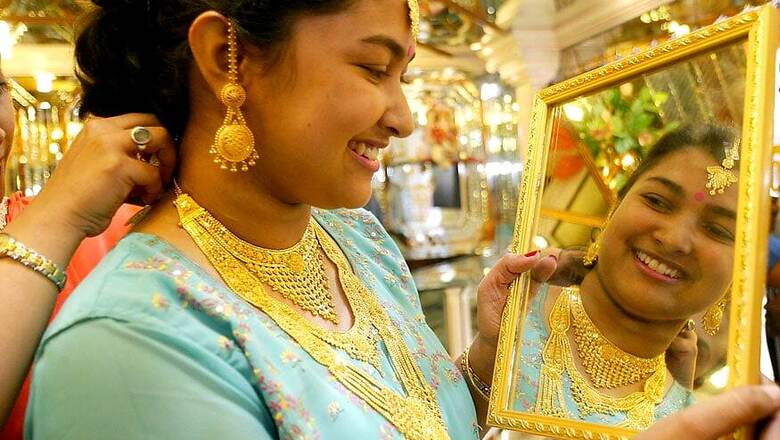
views
Dhanteras or Dhantrayodashi 2017 falls on October 17th 2017, this year, and is revered by Hindus across the globe as a festival of health, wealth and prosperity. As per Hindu mythology, Dhanwantri Trayodashi is observed on the thirteenth lunar day of Krishna Paksha in the month of Ashwin. According to the legend of Samudra Manthan, Goddess Lakshmi emerged out of the ocean after years of churning. It signifies that one can get Lakshmi or wealth only after immense hard work.
Dhanteras also marks the birth day of Dhanwantri – the physician of Gods and the master teacher of all physicians. Dhanwantri too emerged from the ocean during the Manthan carrying Amrit (elixir for immortality).
Thus, Dhanteras or Dhanwantri Trayodoshi is a festivity of health and wealth, and Hindu devotees mark the day with Lakshmi and Kuber’s puja to usher good luck and fortune in their life. According to Drikpanchang, the best time or Shubh Muhurat for Dhanteras 2017 pujan lies during the Pradosh Kaal, which will start after the sunset on October 17th 2017. The Pradhosh kaal will span for 2 hours and 24 minutes.
During the Pradosh Kaal, devotees must do the Lakshmi-Kuber puja in the Sthir lagna so as to please Devi Lakshmi. Thereby, worshippers must observe the following timings to perform the Dhanteras puja:
Dhanteras 2017 – October 17th
Dhanteras 2017 Puja Muhurta – 7:19 pm to 8:17 pm
Duration – 0 hours 58 minutes
Pradosh Kaal – 5:45 pm to 8:17 pm
Trayodashi Tithi Starts – 12:26 am on October 17th midnight
Trayodashi Tithi Ends – 12:08 am on October 18th midnight
Dhanteras is celebrated by bringing in new Dhan (wealth) in the form of gold and silver ornaments; and new utensils, as it is believed that wealth attracts wealth. Rangoli and flower decorations are done to welcome Goddess Lakshmi and Kuber followed by their puja in the evening.
Devotees also light Yamadeep or lamps for the God of Death – Yamraj outside their homes, to ward off ill health and avoid untimely death in the family.




















Comments
0 comment